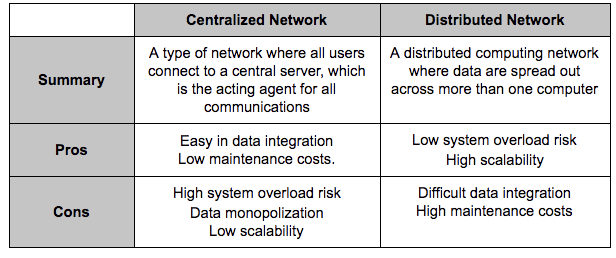CHAIN ID : The world’s first blockchain joint authentication service
Greetings from the ICON Team,
This post is to help you better understand CHAIN ID, the world’s first blockchain joint authentication service developed using theloop’s blockchain engine loopchain.
Discussions are underway in Korea regarding a regulatory shift away from the use of ‘Certified Certificates’. Certified Certificates are issued by a centralized Certificate Authority as a method of personal authentication (digital signature). Financial institutions are at the center of the debate, hoping to move away from using a centralized authentication method to a more diverse and flexible standard for personal authentication.
Answering to the needs of a new method of personal authentication, theloop has joined the Korea Financial Investment Blockchain Consortium as a technical partner to develop CHAIN ID. CHAIN ID is the world’s first blockchain joint authentication service and has been in use since October 2017 by 11 securities companies..
Public figures, such as the chairman of the Korea Financial Investment Association and Don Tapscott, author of ‘blockchain revolution’ and advisor of ICON, sent their congratulatory message in the opening ceremony of CHAIN ID.
We expect the blockchain joint authentication service to extend its use into other industries as well.
[Background information of the Certified Certification system in Korea]
1. The dilemma in the existing system: Universality vs Usability
– Certified Certificates which are universally used but inconvenient.
– Private Certificates which are convenient but have limited use.
After the Digital Signature Act of 1999, authentication methods for financial and other e-commerce transactions have been decided solely by government regulations. Only institutes authorized by the government can issue Certified Certificates, and a separate program must to be installed on your computer by law for the certificate to be used.
Korea’s authentication environment, which was built around government regulations, started to break away from the global standard. This led to corporations in Korea losing global competitiveness. In the future it is expected that there will no longer be classifications of Certified / Private Certifications, and all certificates will have the same authenticity. The benefits are as follows;
Benefits for corporations
Can freely create / upgrade and implement authentication systems that match the company’s needs.Benefits for users
Easier use of the authentication process than the inefficient government regulated certificates.
Even with the benefits stated above, the uses of private certificates were limited due to the lack of ‘trust’ in the certificate itself, since it is not certified by a certified institution. However, using blockchain technology, this problem can be solved.
2. Building trust without a third-party mediator by using distributed ledger technology.
To understand how blockchain technology can solve the problem of trust without a mediator, you need to understand the difference between a centralized network and a distributed network.

Unlike a centralized network, which stores and process all the data in a central server, a distributed network spreads data across a network of computers (nodes) and follows a specific set of rules to share and update the same data.
This specific set of rules, known as a consensus algorithm, allows the nodes to judge if the updated or changed data is trustworthy. With a consensus algorithm in place, a distributed network can maintain an accurate database without the use of a trusted third party.. This means that all participants in the network can build a mutual trust among each other and share the same trustworthy data.
[CHAIN ID, the world’s first blockchain joint authentication service]
While the issues of trust and universality can be solved via blockchain technology, the issue of data integrity still exists. Simply applying blockchain technology can’t ensure that the data in the system is secure, complete, consistent, and without human error.
To solve the problem of data integrity, smart contracts based on theloop’s proprietary blockchain engine, loopchain, were used to create CHAIN ID. Smart contracts are self-executing contracts with the terms of an agreement written directly into lines of code. Smart contracts ensure the implementation of the network rules, making the data secure and complete, while also lowering the risk of fraud or malicious alterations.
CHAIN ID issues a joint certificate through the consensus of the nodes (participants) in the network. The joint certificate is already authenticated through the consensus of the nodes and can be used freely throughout the network without any additional authentication. The smart contracts will guarantee the integrity of the data, ensuring that the certificate is trustworthy and without the risk of being altered.
The information and status of the certificate is shared among the nodes in real-time so that all the participants will have the same information. By all the nodes having the same data, CHAIN ID can prevent single points of failure, such as hacking attempts that may happen in centralized network environments.
Using CHAIN ID, users can experience a more convenient and reliable environment for making financial transactions.
[ICON’s vision]
Blockchain technology is slowly but surely changing the way enterprises conduct business and how they interact with their consumers. CHAIN ID is already changing the lives of all those who interact with the 11 securities companies utilizing the technology. ICON’s vision is to expand this paradigm shift across as many industries as possible.
An authentication system means more than just a way to authenticate. Relationships between corporations and customers are founded on the basis of mutual trust, and an authentication system should be seen as a starting point for the infrastructure of the blockchain industry. Using this infrastructure ICON is creating a ‘Hyperconnected World’, where blockchain communities are connected, creating greater synergies and further expanding the blockchain ecosystem.
ICON is dreaming of a world where enterprise services and DApp services are connected through the ICON network to provide innovative and new experiences to users. We will do our best to achieve this vision, and with the support of the community we truly believe it will happen.
Thank you,
Hyperconnect the World
